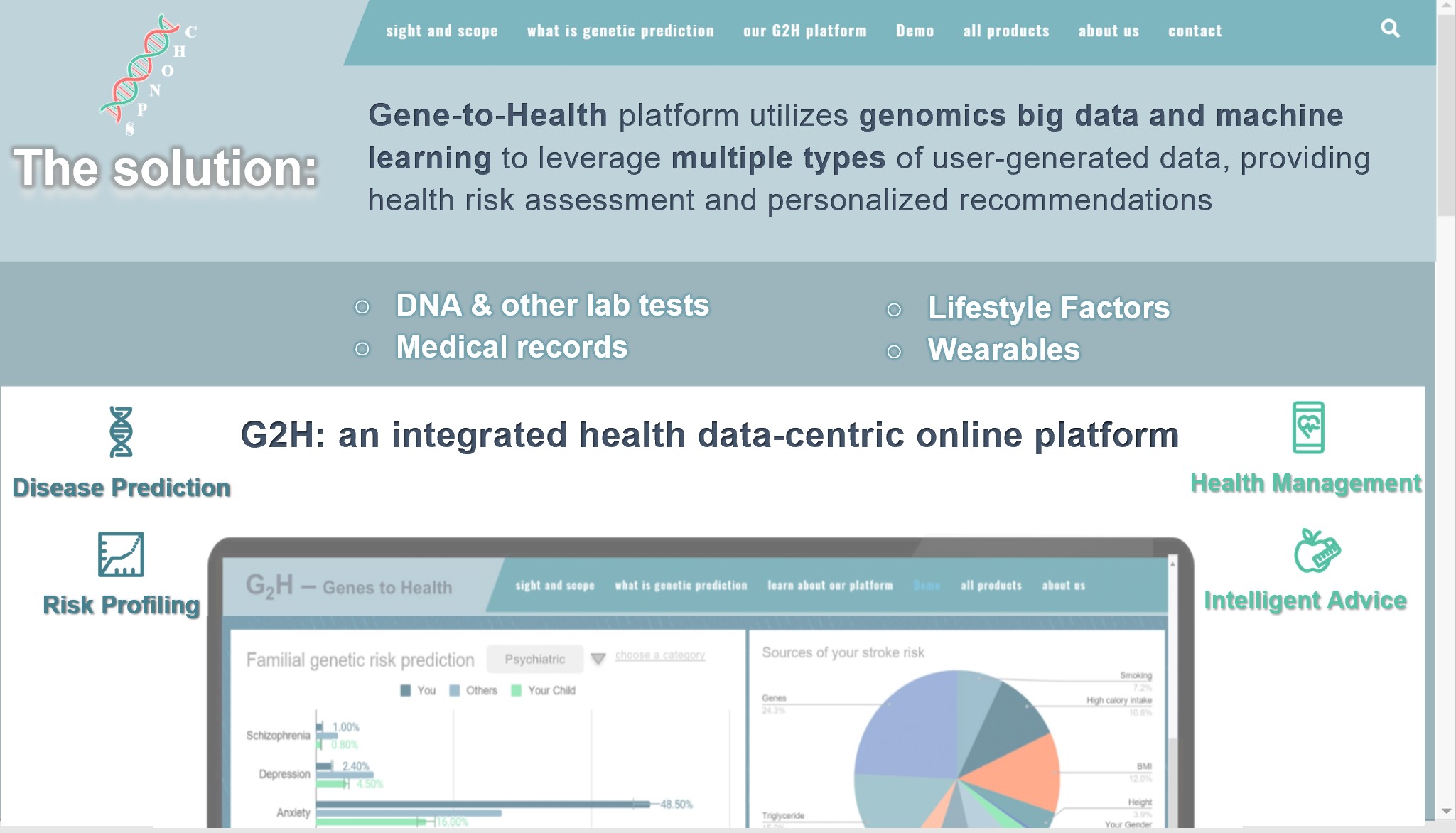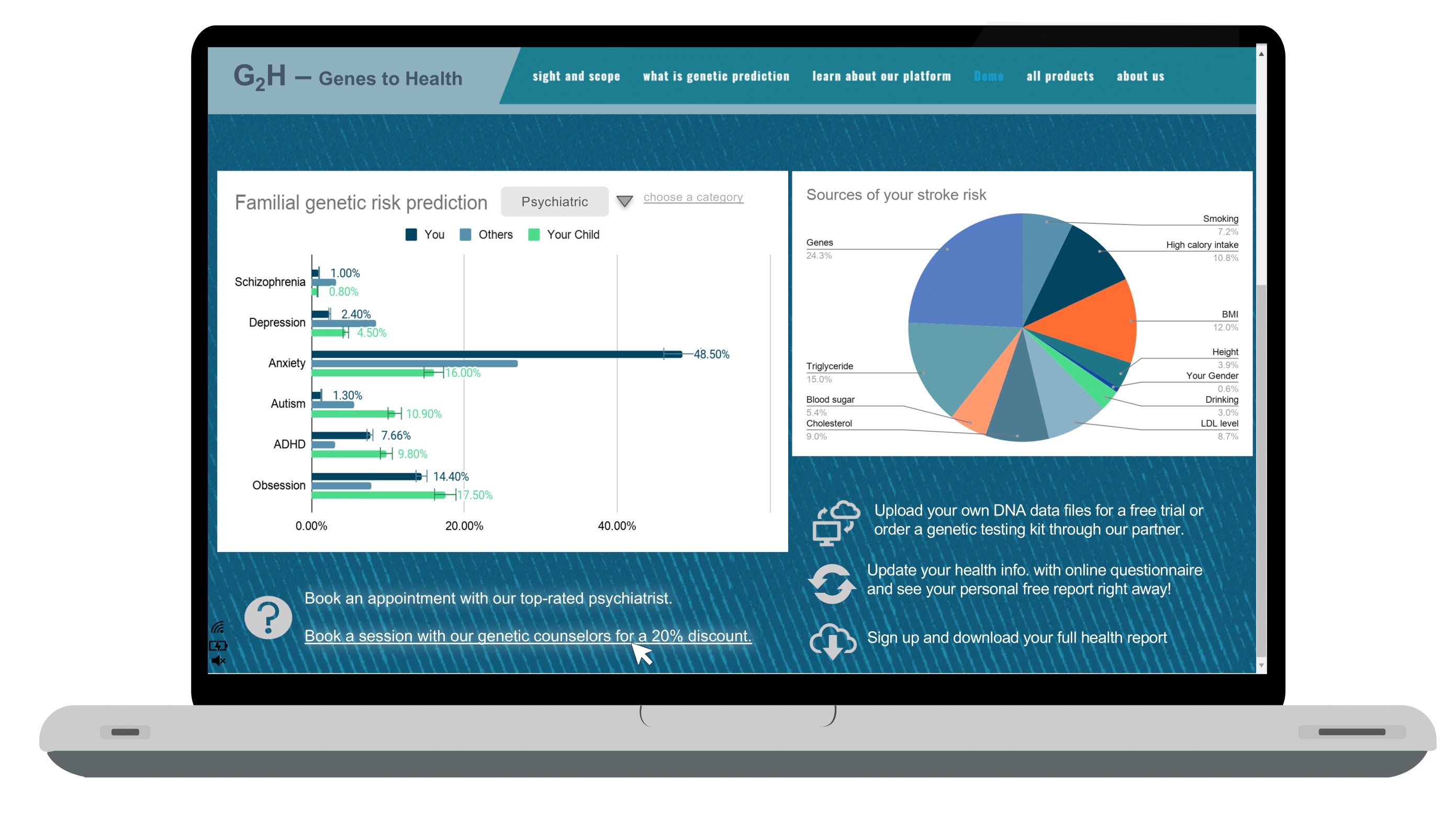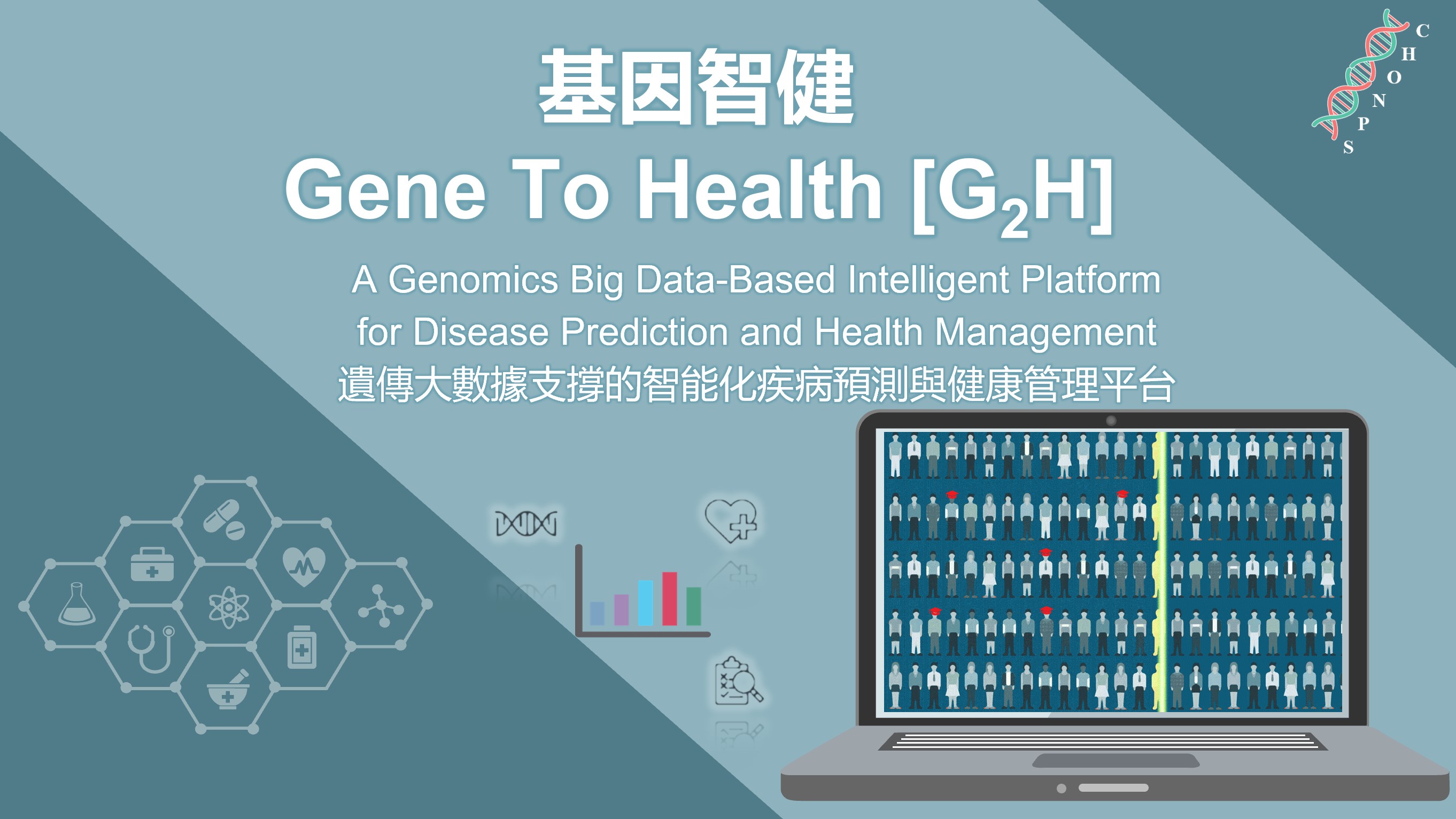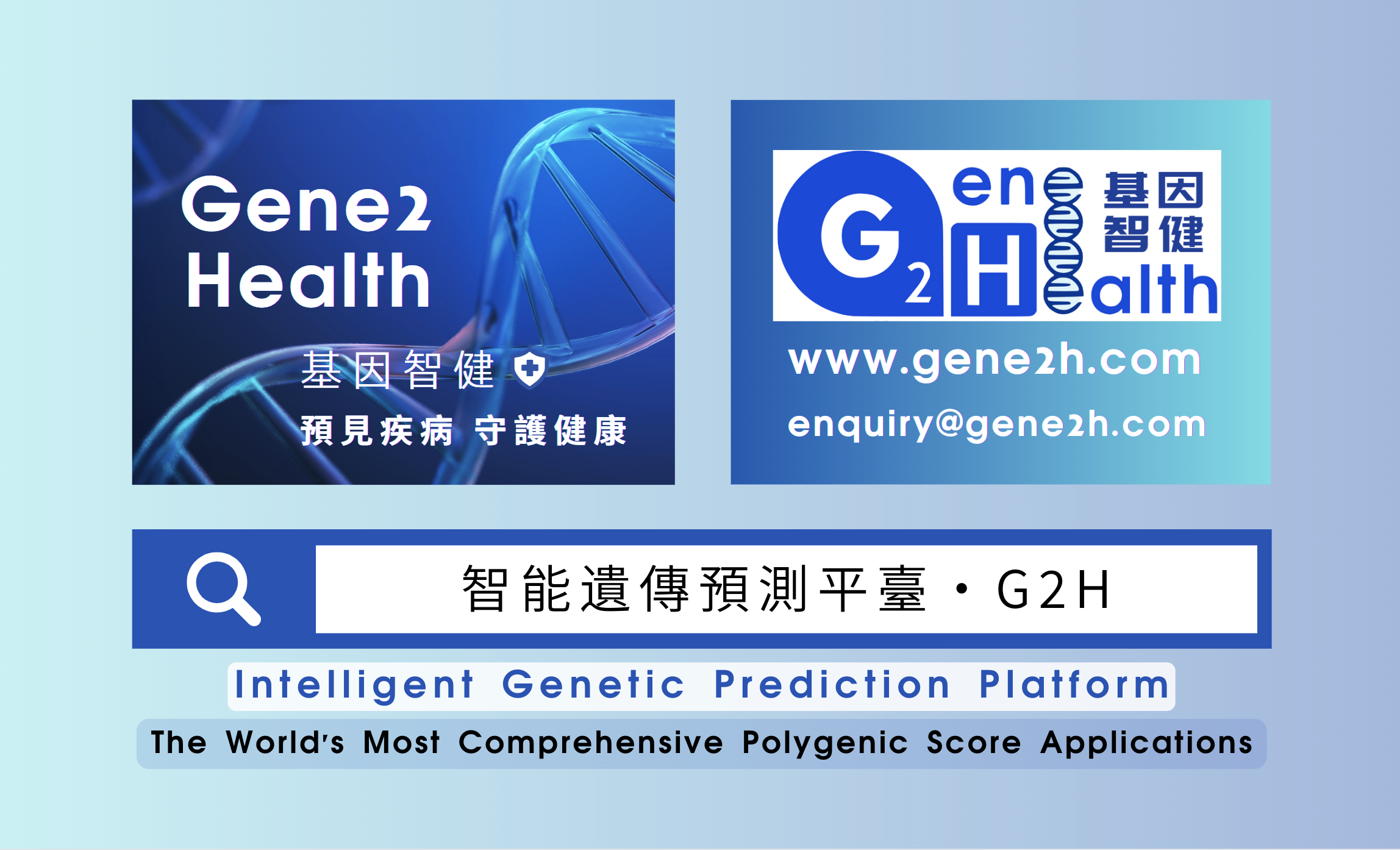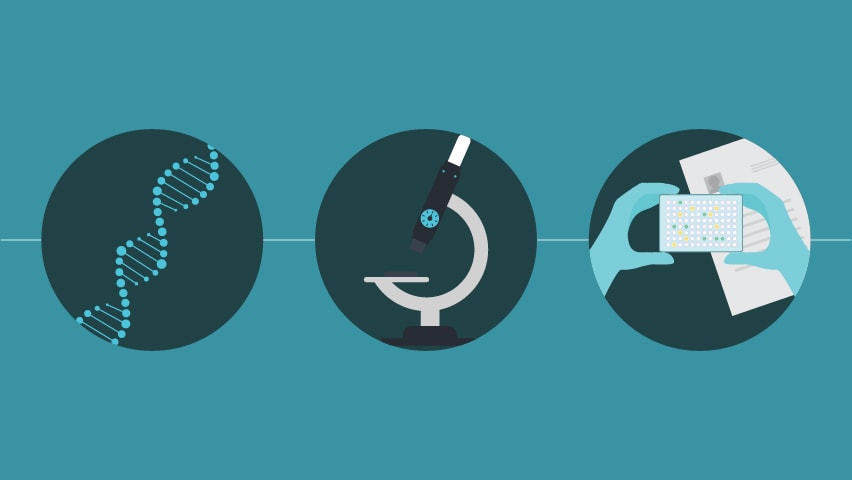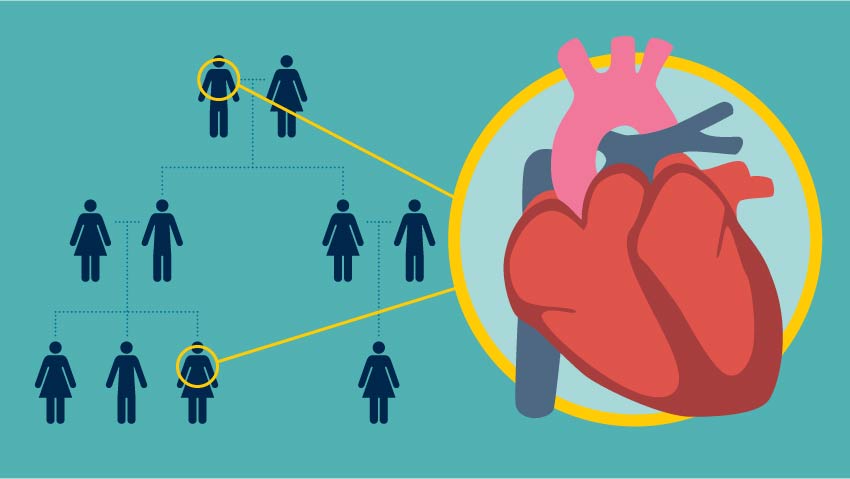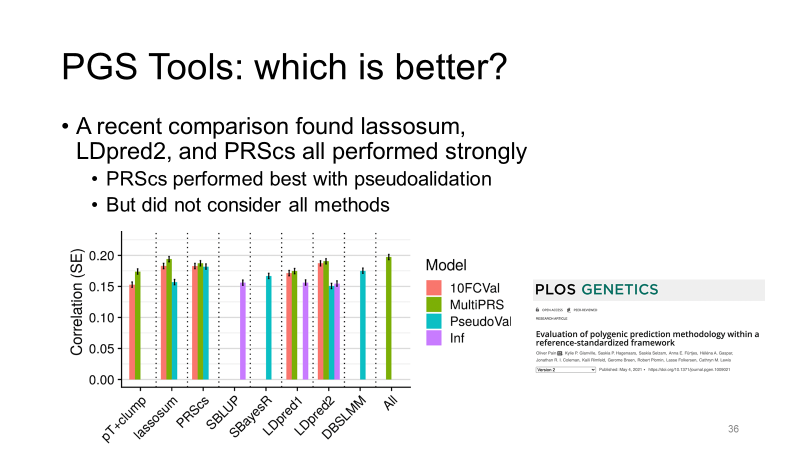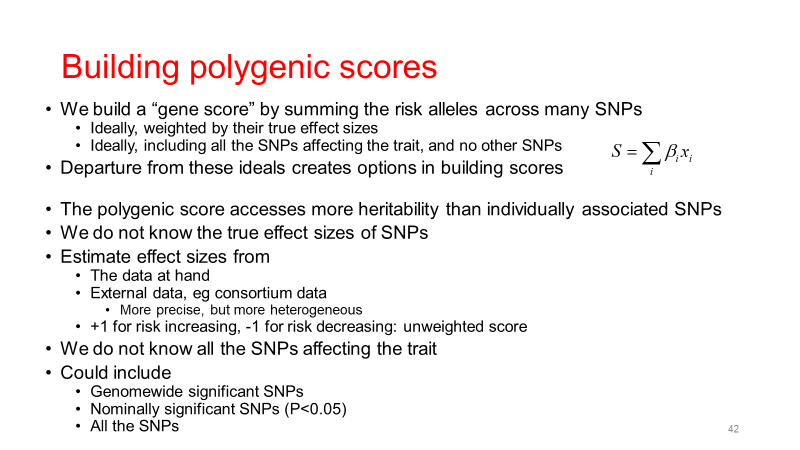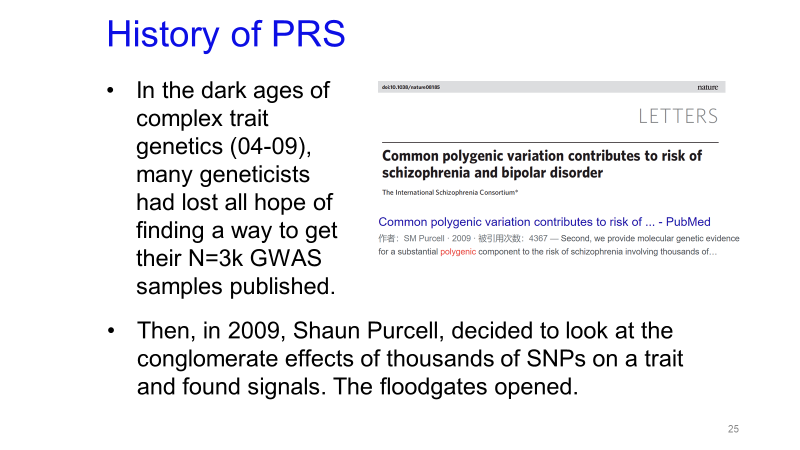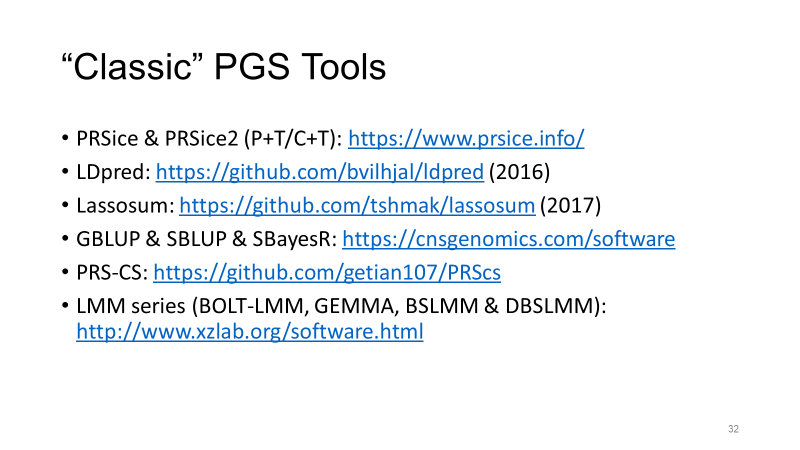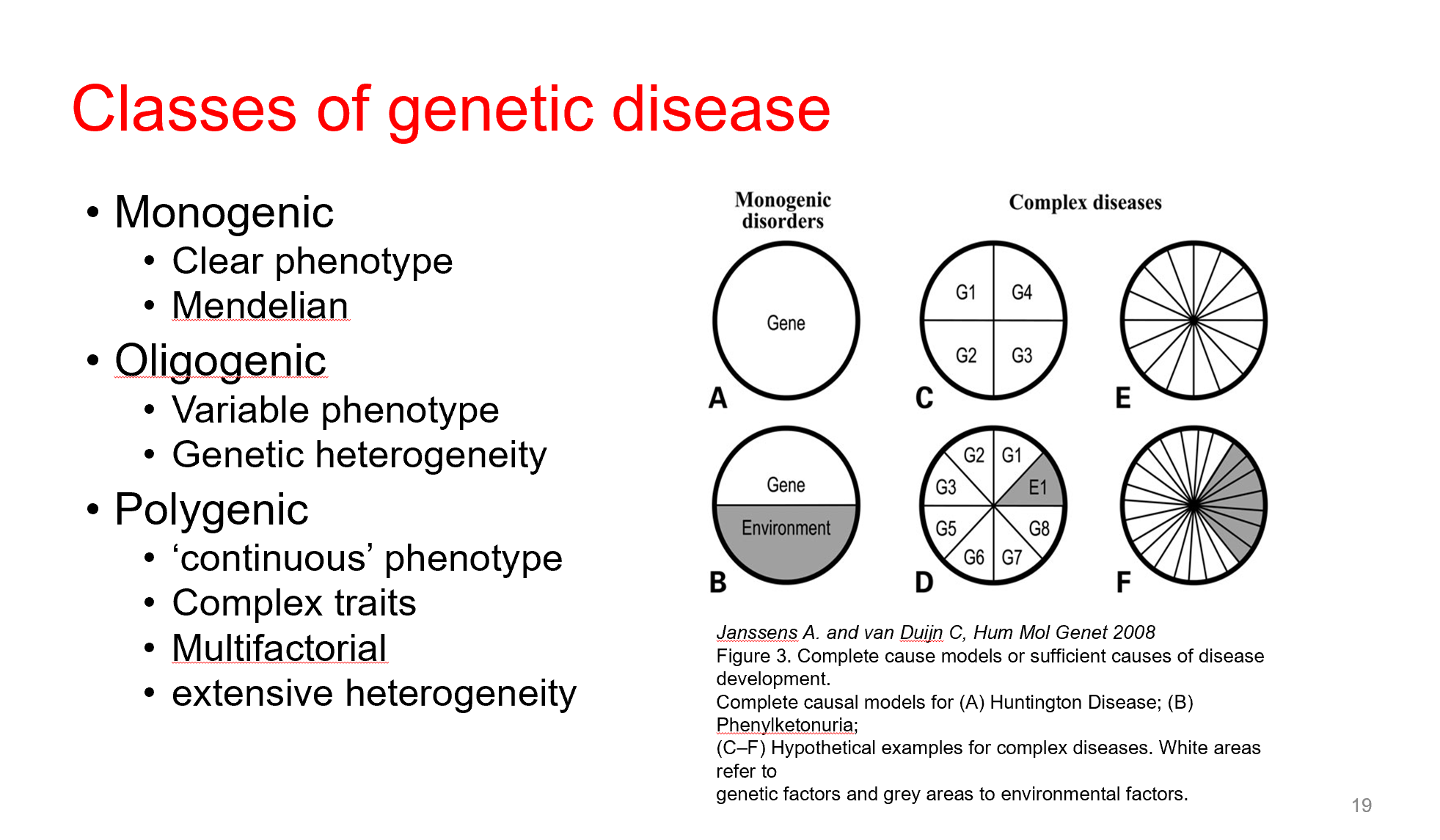- 我們的平颱 What is G2H
- 科學原理 The Science of Polygenic Scoring
- 示例報告Sample Report
- 關於遺傳檢測 More about Genetic Testing
- 常見問題 FAQ
- 産品信息 Product Info
- 公司信息 Company Info
- 服務內容 All services
- 使用諮詢 Consult before use
- 售後服務 Customer service
- 遺傳諮詢 Genetic counselling
- 臨床諮詢 Clinical counselling
- AI 虛擬諮詢師 AI virtual counselling
- 近期活動 Recent activities
| unfated |
Introduction Genetics plays an integral role in determining an individual's susceptibility to various diseases. Advances in genomic technology have enabled scientists to explore the genetic architecture of complex traits and diseases. Among these developments, Polygenic Risk Scores (PRS) have emerged as a significant technological breakthrough, leveraging genome-wide association studies (GWAS) data to calculate an individual's cumulative risk across many genetic variants. The Technology behind Polygenic Risk Scores The computation of PRS is based on GWAS, which is a study of a genome-wide set of genetic variants in different individuals to see if any variant is associated with a trait. GWAS identify single nucleotide polymorphisms (SNPs) that are correlated with the traits of interest. Following a GWAS, a PRS can be computed for an individual as the sum of risk alleles that the person has, each weighted by the effect size estimated from the GWAS. Essentially, PRS takes into account the additive effects of multiple genetic variants, considering not only those with a large impact but also those with a small effect. This polygenic approach helps capture a broader view of genetic predisposition, thereby providing a more comprehensive risk profile. Applications of Polygenic Risk Scores PRS are currently being used in a variety of contexts, from academic research to clinical settings. They are often applied to predict individual risk for diseases that have a known genetic component, such as breast cancer, coronary artery disease, and type 2 diabetes. In the research context, PRS are helping scientists to understand the genetics behind complex traits and diseases better. This increased understanding is also facilitating the development of potential new treatments and interventions. In clinical settings, PRS are increasingly being integrated into risk assessment models to provide a more personalized estimate of disease risk. This can assist clinicians in identifying high-risk individuals for earlier interventions or more intensive monitoring. Potential of PRS in Predicting Health Traits and Disease Risk The potential of PRS is vast. They offer the possibility of screening an entire population for genetic risk factors, thus identifying at-risk individuals even before the onset of symptoms. This can open up new pathways for preventive medicine and early intervention, which could significantly impact public health. Moreover, the potential of PRS goes beyond just disease risk prediction. They could also be used to predict other health-related traits such as height, body mass index (BMI), or even complex traits like educational attainment or personality traits. Conclusion Despite the promising potential of PRS, there are still limitations and challenges that need to be addressed. These include the issue of bias towards populations of European ancestry in GWAS studies and the ethical implications of genetic risk prediction. Nevertheless, as we continue to refine this technology and address these challenges, PRS hold the promise of revolutionizing personalized healthcare by providing an individualized genetic risk profile. They offer an exciting frontier in our ongoing exploration of the human genome and its impact on health and disease. |
Gene to Health Limited primarily focuses on developing multi-omics predictive models for common disease risks, conducting biomedical big data analysis and modeling, and providing bioinformatics research services. We are a pioneer in Asia focused on polygenic scoring technology, leveraging millions of disease-related genetic variants and other omics data to predict over 1000 traits and diseases. Our core product suite, G2H, provides personalized health management solutions in one platform, including risk assessments for chronic diseases, dietary optimization, lifestyle advisory, and cancer risk prediction. We aim to revolutionize disease prevention and improve early disease intervention by integrating advanced genomic analysis, ML and AI.
我們是來自香港大學醫學院 (HKU Med) 的博士創業糰隊,擁有以Polygenic Scoring (多基因風險評分,PGS)的核心技術,基因智健(G2H)平颱是我們開髮的核心産品。該平颱主要利用基於多組學大數據的統計機器學習模型分析用戶數據,從而預測和評估上韆種種人類疾病風險和健康錶型,爲您的健康人生保駕護航。
| 聯繫人: | Dr. CHEN Guolan Lane |
|---|---|
| 電話: | +852 46404365 |
| Email: | support@gene2h.com |
| QQ: | 3028035047 |
| 微信: | lanechenhku |
| 微博: | u/7735987435 |
| 地址: | 1)Unit 707-34, 7F, Building 19W, No. 19 Science Park West Avenue, Hong Kong Science and Technology Park, Pak Shek Kok, N.T., Hong Kong 2)5 Sassoon Road, 1F, Pok Fu Lam, Hong Kong, China 3)Room 903, No. 91, Ke Feng Road, Huangpu District (Guangzhou Development Zone), Guangzhou, Guangdong Province, China 1)中國香港特彆行政區新界白石角科技園西大道19號19W座7樓707-34單元 2)中國香港特彆行政區薄扶林沙宣道5號1F 3)中國廣東省廣州市黃埔區(廣州開髮區)科豐路91號903 |
掃一掃企業微信客服,立卽與我們溝通 (WeChat Customer Service)
Follow us at LinkedIn 關註領英
